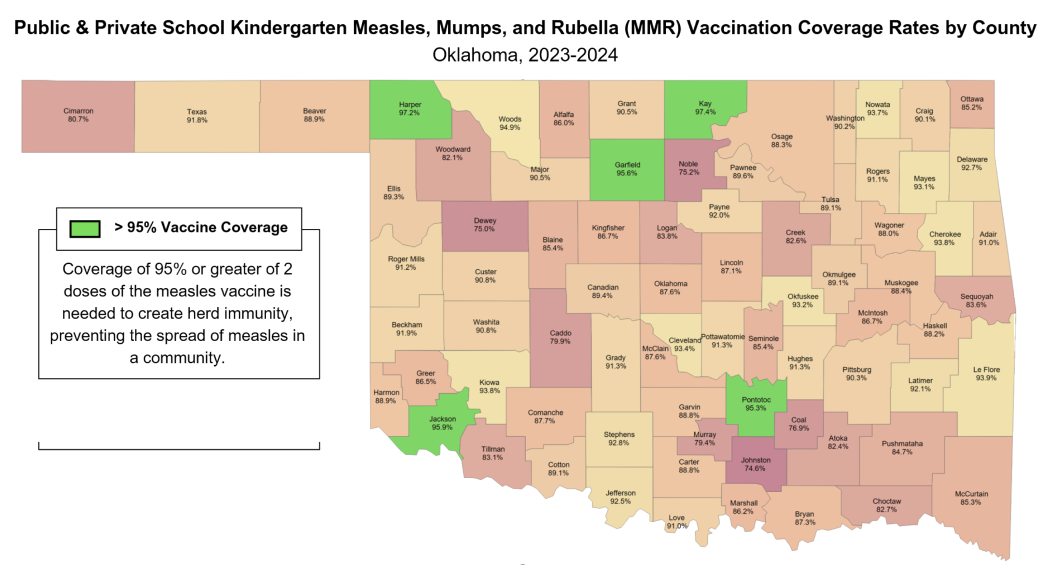




To check to see if you have been vaccinated against measles, request your shot records here:
You can also call your local clinic or healthcare provider to request your vaccine records.

The best way to protect against measles is to get the MMR vaccine. When enough people in your community get vaccinated, the group has herd immunity. Herd immunity is the protection that happens when enough people are immune to measles, typically through vaccination, making it hard for the disease to spread. This is due to fewer people being able to get infected. This also indirectly protects those who cannot be vaccinated for medical reasons.


Who should get the MMR vaccine?
The vaccine is recommended for children at 12 to 15 months of age and again at four to six years of age, but older children and adults who are not vaccinated can also get the MMR vaccine. Most people who are vaccinated with the MMR vaccine will be protected for life. However, people vaccinated prior to 1968 with either inactivated (killed) measles vaccine or measles vaccine of unknown type should be revaccinated with at least 1 dose of live attenuated measles vaccine.
Is the MMR vaccine safe?
The MMR vaccine is very safe. Vaccines, like any medicine, can have side effects. While most people do not have any side effects, they can include soreness, redness, or swelling where the vaccine was given, fever, mild rash, and temporary pain and stiffness in the joints. These are usually mild and go away on their own.
Does the MMR vaccine cause autism?
There is no link between the MMR vaccine and autism. Scientists in the United States and other countries have carefully studied the MMR vaccine. None has found a link between autism and the MMR vaccine.
Can vitamin A prevent measles?
No; vitamin A should not be used to try to prevent measles, and high doses of vitamin A are potentially very harmful. The only effective way to prevent measles is the MMR vaccine.
What if I can’t remember if I have had the MMR vaccine?
There's no harm in getting another dose if you may already be immune to measles, mumps, or rubella through a previous vaccine. You can also request your shot records from the state health department or your local clinic to see if you have already had the MMR vaccine.
Can I get vaccinated if I am breastfeeding?
It is safe for breastfeeding women to receive the MMR vaccine. Breastfeeding does not interfere with the response to MMR vaccine; and the baby will not be affected by the vaccine through breast milk. By having the MMR vaccine, you are also protecting the baby who cannot yet get the vaccine.
How easily does measles spread?
Measles is very contagious. It spreads through the air when an infected person coughs or sneezes. You can get measles just by being in a room where a person with measles has been. This can happen even up to 2 hours after that person has left.
What do I do if I think I might have measles?
If you think you might have measles, call your healthcare provider as soon as possible. Let them know about any symptoms you have and they will advise you on what to do next. It is important to call first because measles is highly contagious.
*Source: Centers for Disease Control and Prevention. Measles Vaccination. Updated 2025.
Office 405.652.9200 Fax 405.840.7052 Email info@spthb.org
9705 Broadway Extension, Suite 200 | Oklahoma City, OK 73114 | P.O. Box 16457, Oklahoma City, OK 73113
The SPTHB doesn't diagnose illness, provide treatment or prescribe medication. If you need medical advice, please consult with your doctor or a healthcare professional. Call 911 if you are experiencing an emergency that requires immediate assistance from police, fire department or ambulance.
